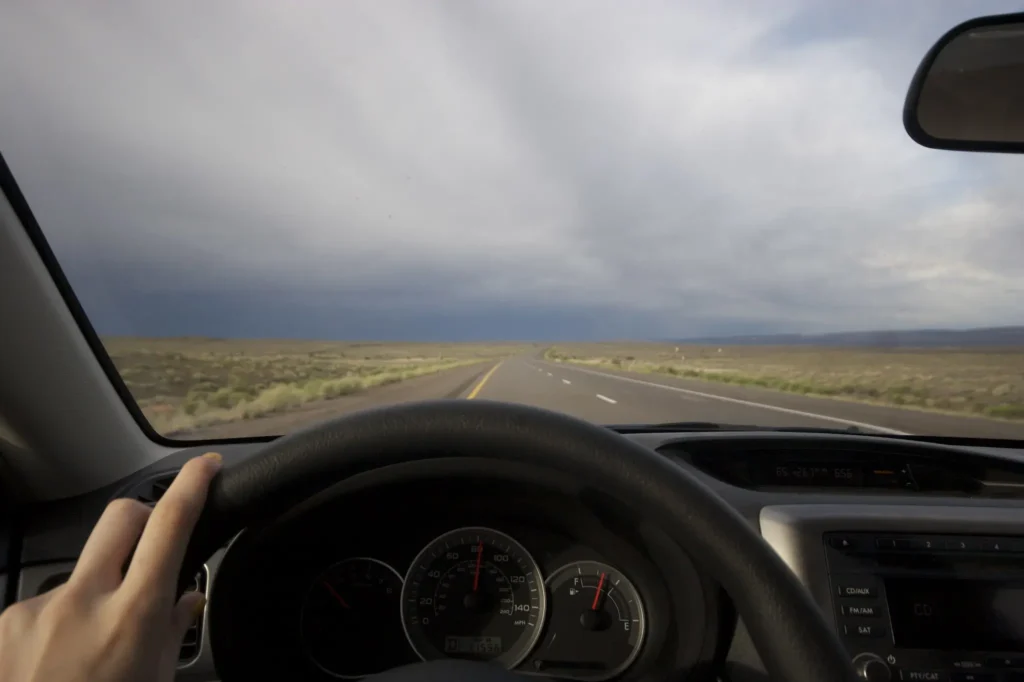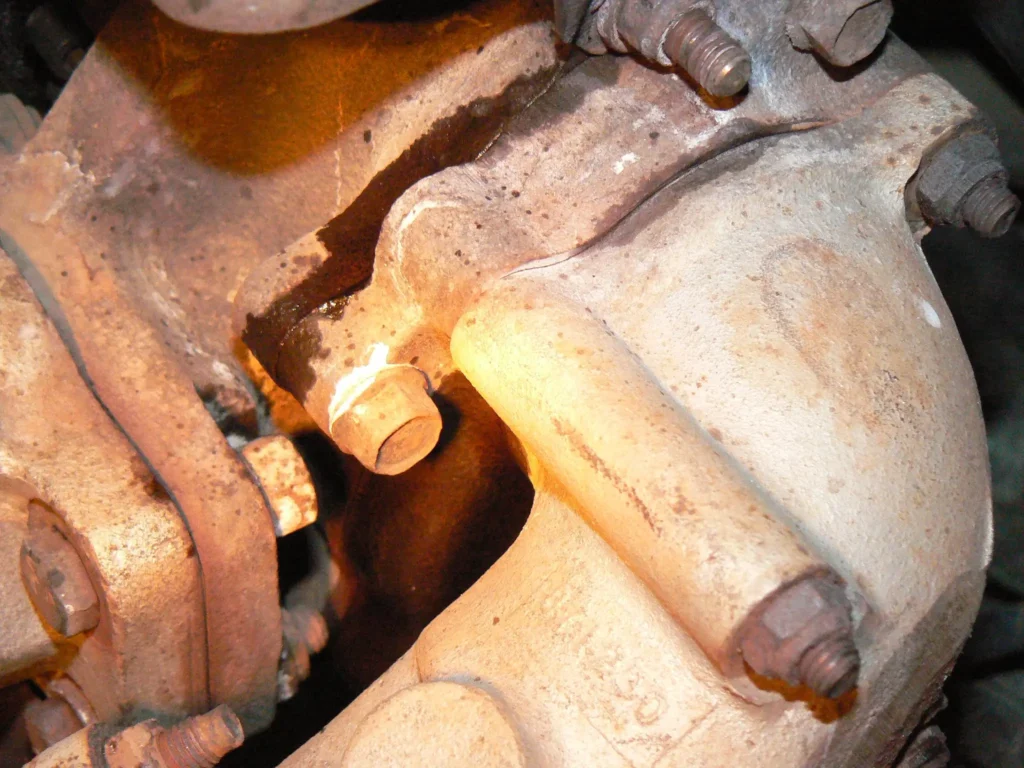A misfiring engine is never a good sign. That sudden loss of power and stuttering indicate your engine isn’t firing on all cylinders. But what’s causing the misfire? There are many potential culprits, from faulty spark plugs to bad ignition coils. However, one overlooked cause of engine misfires is using low-quality or “bad” gas.
Gasoline is a complex mixture of hydrocarbons that must ignite at precisely the right moment to properly power your engine. Using old, contaminated, or improper octane gas can wreak havoc on this delicate combustion process. Read on to learn will bad gas cause misfire, how to diagnose the issue, and what you can do to fix it.
Will Bad Gas Cause Misfire If then How Does it?
To understand how bad gas cause misfires, you first need to understand how gasoline ignites inside the engine’s cylinders. Here are the basic steps:
- Air and atomized fuel enter the cylinder through the intake valve.
- The piston compresses the air/fuel mixture.
- At the optimal moment, the spark plug fires, igniting the gasoline.
- The rapid explosion pushes the piston down, providing power.
- The exhaust valve opens, expelling the spent gases.
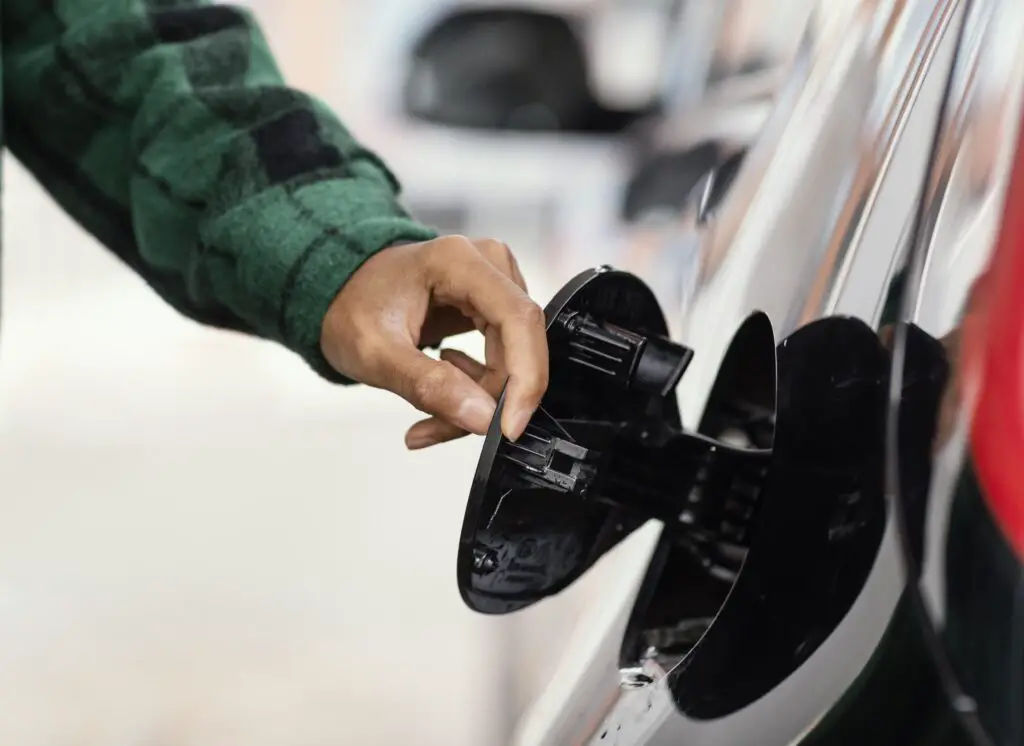
This cycle repeats thousands of times per minute in a smooth-running engine. Anything that affects the air/fuel ratio or ignition timing can disrupt this delicate dance and cause a misfire. Here are some of the ways low-quality fuel leads to misfires:
Contaminated or Degraded Gasoline
Will bad gas cause misfire? As gasoline ages, it starts to oxidize and degrade, forming gums and varnishes. This sticky residue clogs fuel injectors and reduces injection pressure. Degraded fuel also vaporizes poorly, altering the air/fuel ratio. These issues make it harder for the fuel to properly ignite, resulting in misfires.
Water contamination is another common gasoline problem, either from condensation or direct contamination. Just a few teaspoons of water per gallon of gas can cause performance issues. Water prevents fuel from properly atomizing, and when it turns to steam, it disrupts cylinder pressure.
Dirt, rust, and other contaminants are also culprits. Will bad gas cause misfire? They can clog fuel filters, lines, and injectors. Using a fuel stabilizer and keeping your gas fresh reduces these kinds of fuel contamination issues.
Incorrect Octane Rating
Octane rating measures gasoline’s resistance to pre-ignition under compression. If the octane is too low for your engine, it can ignite prematurely, causing misfires and even engine damage over time.
Using higher-octane gas than recommended also causes issues. Premium fuel won’t ignite as readily under compression, altering the combustion timing. So misfires are possible whether the octane is too low or too high.
Ethanol Blend Problems
Most gasoline contains 5-15% ethanol alcohol to reduce emissions. Ethanol attracts water and can separate from gasoline in as little as a month. This form of fuel contamination causes performance issues and misfires.
Ethanol also burns faster and hotter than pure gasoline. That changes combustion timing, especially in older engines not designed for higher ethanol blends. Gas with more than 10% ethanol (E15) should only be used in flex-fuel vehicles.
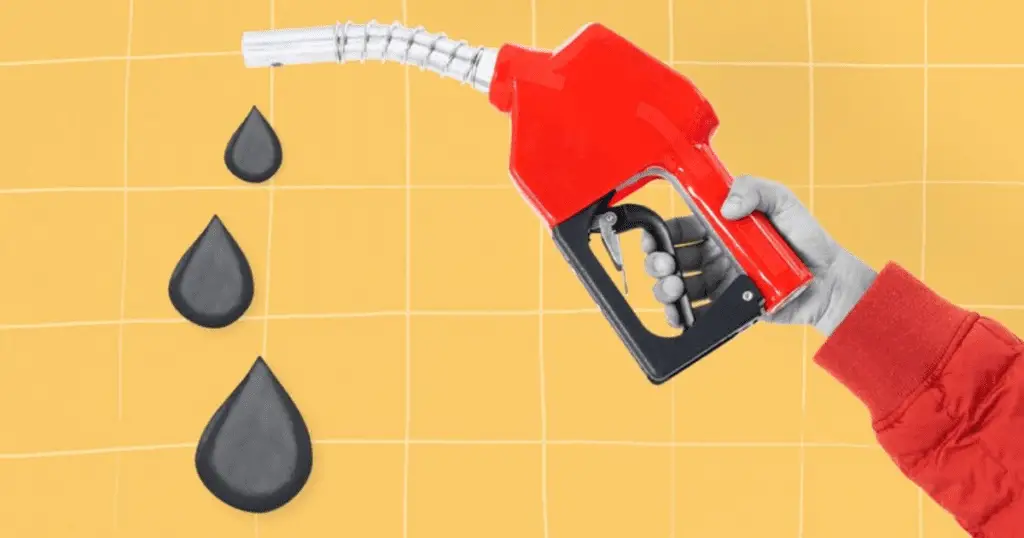
Methanol or Kerosene Contamination
Sometimes gasoline gets accidentally (or intentionally) contaminated with other volatile fluids like kerosene or methanol racing fuel. Even small amounts of these chemicals greatly disrupt the air/fuel ratio and combustion timing. This almost always causes severe engine misfires, along with other performance problems.
The bottom line is that any fuel impurity or substance that alters the gasoline’s octane rating, vaporization, or combustion qualities can cause misfires. Will bad gas cause misfire? Low-quality gas is a magnet for these kinds of problems.
Signs – Will Bad Gas Cause Misfire
How can you tell if the engine misfire is from bad gasoline and not something else? Here are a few telltale signs of fuel-related misfire issues:
- The misfire started immediately after filling up with gas. If the problem begins right after refueling, contaminated fuel is the likely culprit.
- You’ve recently switched gas stations or brands. Different stations and fuel brands have varying quality control. Suddenly changing where you purchase fuel can expose you to low-quality or improperly blended gasoline.
- The check engine light is NOT on. A fuel-related misfire may not trigger the check engine light, unlike misfires from mechanical issues like bad spark plugs or coils.
- The misfires seem random and come and go. Erratic stuttering that clears up as you drive is very characteristic of bad gas problems. The fuel contamination may only affect certain cylinders randomly.
- Performance returns to normal after refueling. If the misfire disappears after topping off the tank, that’s a strong sign the previous gas contained impurities.
- You filled up with a higher ethanol blend. Misfires are common when improperly using E15 or E85 gas not approved for your vehicle.
- There’s no loss of power. With bad gas, the engine will misfire but power will return once combustion resumes. Mechanical problems usually come with a noticeable power loss.
By correlating the misfires with your recent fuel purchases and refueling, you’ll have a very strong indicator of whether bad gas is the root cause.
Fixing Misfires Caused by Low-Quality Fuel
While low octane or contaminated gas can cause engine misfire, the good news is this is often an easy fix. Here are proven methods for diagnosing and addressing fuel-related misfire issues:
Diagnose the Misfiring Cylinder(s)
Will Bad Gas Cause Misfire? Determining which of the engine’s cylinders is misfiring is key to diagnosing and fixing the problem. A few ways to pinpoint the bad cylinder(s):
- Use an OBD2 scanner – This diagnostic tool can read cylinder misfire fault codes from your vehicle’s computer, identifying the location.
- Listen to the exhaust – Have someone rev the engine as you listen at the muffler. The odd-sounding cylinder(s) are the culprits.
- Check spark plugs – Remove each plug and check for black sooty deposits indicating a rich misfire from bad gas.
Once you’ve identified the problem cylinder(s), you can move on to resolving the fuel issues.
Drain the Contaminated Gas Tank
The most direct solution is to simply drain the bad gas so it can’t cause any more misfire problems. This may be overkill if it’s just a bit of water contamination. But for seriously degraded or contaminated fuel, draining the tank is best.
Siphon out the gas manually, being very careful to avoid inhaling fumes. Alternatively, a mechanic can pump out the tank for you. Properly dispose of old gasoline as hazardous waste.
With the tank drained, refill it with fresh, high-quality gas from a reputable station. That alone can fix many bad fuel-related misfire cases. It’s an inexpensive solution you can try before exploring more advanced fixes.
Add Fuel Injector Cleaner
Rather than draining the whole tank, try adding a top-tier fuel injector cleaner like Chevron Techron or Royal Purple Max Clean. These cleaners contain powerful detergents to remove deposits from dirty injectors and help stabilize contaminated gasoline.
Adding a dose of 2-3x the standard concentration can work wonders to resolve misfires from bad gas. It breaks down gums and varnishes so combustion resumes normally. Just make sure to select a cleaner suitable for your engine type.
Isolating and running cleaner through just the problem cylinder(s) accelerates the cleaning process. If you know which injectors are dirty, this targets the treatment. However, adding it to the whole tank is easier and still effective.
Install a Fuel Filter
A clogged fuel filter prevents contaminants in dodgy gas from reaching your injectors. This simple maintenance item cleans the fuel and eliminates misfire-causing particles and residues.
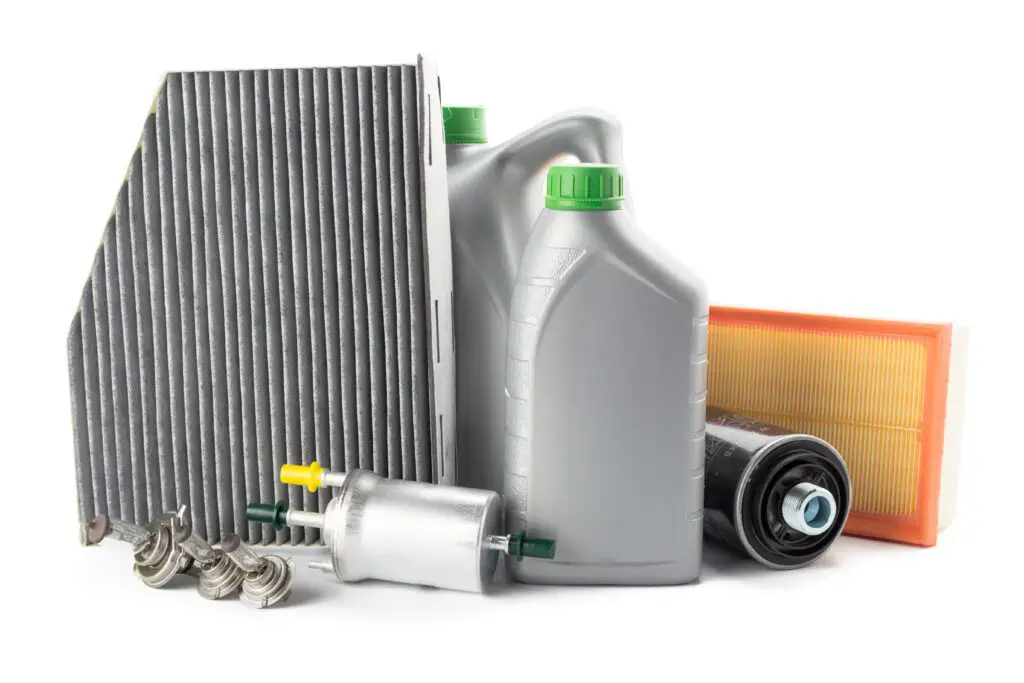
Fuel filters are easy to install yourself or have replaced at a shop. Opt for a 10-micron or lower microfiber filter to catch tiny debris. Change it annually or every 10-15k miles to keep the fuel system contaminant-free.
Adjust Air/Fuel Mixture
Will Bad Gas Cause Misfire? In some cases, bad gas causes misfires because it forces the engine to run lean or rich. Tuning the air/fuel mixture may help achieve smooth combustion again. Here’s how:
- Use an O2 sensor spacer to trick the computer into adding more fuel. This richens the mixture to compensate for poor fuel quality.
- Install a bigger fuel injector to deliver more gasoline per combustion cycle.
- Adjust the MAF (mass airflow sensor) to change combustion air ratios.
A mechanic can tune fuel trims and make these adjustments to dial in the optimal air/gasoline mixture. It essentially overrides the negative effects of bad gas.
Switch Gas Stations
Sometimes the root cause of fuel-related misfires is as simple as the gas station you visit. Their underground storage tanks may not be properly maintained, allowing moisture or contaminants into their fuel supply.
Try buying gas somewhere else, ideally a high-volume station that goes through more daily turnover. Top-tier brands like Chevron, Shell, and Phillips 66 also have more fuel quality controls than cut-rate stations. Just changing your fill-up location can fix gas problems leading to misfires.
While low-quality fuel is frustrating, the solutions above should get your engine firing properly again. Take care to buy fresh gas and learn the signs of contamination. Addressing the problem promptly minimizes any lasting effects on your vehicle. With a little diligence, bad gas doesn’t have to spell disaster for your engine.
FAQs About Will Bad Gas Cause Misfire
Can a car misfire from bad gas?
Yes, bad gasoline that is old, contaminated, or the wrong octane can cause an engine to misfire. Issues like low fuel pressure, injector clogs, and incorrect combustion timing are common results of poor fuel quality that lead to misfires.
What are the signs of bad gas in your car?
Misfiring or rough engine operation are obvious indicators of bad gas in your vehicle. However, other symptoms include check engine lights, hard starting, poor acceleration, reduced fuel economy, and a strong fuel smell. If your car displays these after refueling, contaminated gasoline is likely the culprit.
Will bad gas cause rough idle?
Absolutely – rough or irregular idle is a classic symptom of fuel contamination problems. Bad gas can cause erratic cylinder firing at low RPMs during idle due to factors like vapor lock, injector clogging, or incorrect air/fuel mixtures. The engine will sound rough or choppy when idling if bad fuel is present.
Can the wrong octane fuel cause a misfire?
Using gasoline with the incorrect octane rating for your vehicle can cause misfires. If the octane is lower than recommended, it can pre-ignite before the spark plug fires. Higher than recommended octane may not ignite readily enough under compression. Both situations disrupt combustion timing and lead to misfires.
How do you fix bad gas in a car?
Draining the tank and refilling it with fresh fuel is the most thorough fix. Alternatively, adding a fuel system cleaner, replacing the fuel filter, adjusting fuel trims, or switching gas stations may clear up issues from contaminated gas and stop misfires. Finding and addressing the root cause of the gasoline contamination is key.
What sensors can cause misfires?
Faulty airflow sensors (MAF), oxygen sensors (O2), throttle position sensors (TPS), camshaft, and crankshaft sensors can cause ignition timing issues and cylinder misfires. Knock sensors and barometric pressure sensors may also trigger a misfire if malfunctioning. These sensors should be investigated if there are no fuel-related causes found.
Summary of Key Points – Will Bad Gas Cause Misfire:
- Using old, contaminated, or wrong-octane gasoline can cause engine misfires since proper combustion relies on high-quality fuel.
- Signs like misfires after filling up and erratic stuttering indicate low fuel quality is the root cause rather than mechanical issues.
- Draining the tank, using fuel injector cleaner, replacing filters, or adjusting fuel trims can all fix misfires from bad gas.
- Buying fuel from quality gas stations and maintaining your engine can help prevent misfires related to gasoline issues.
- Investigating fuel supply problems is worthwhile if an engine suddenly starts misfiring for no apparent reason.
